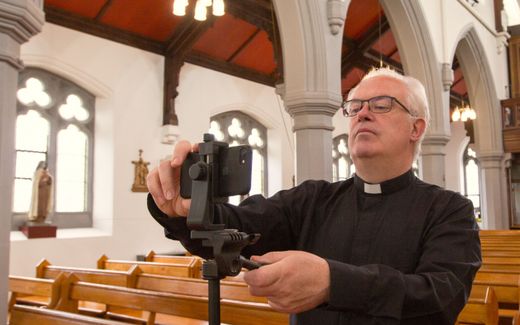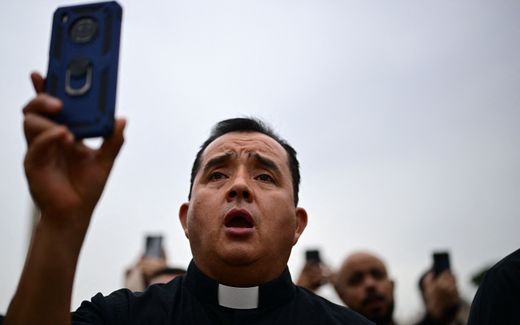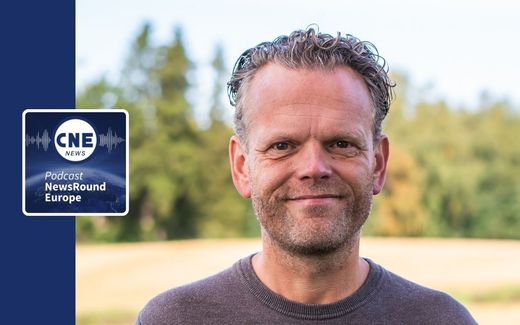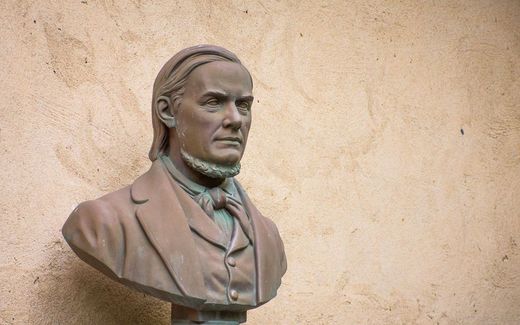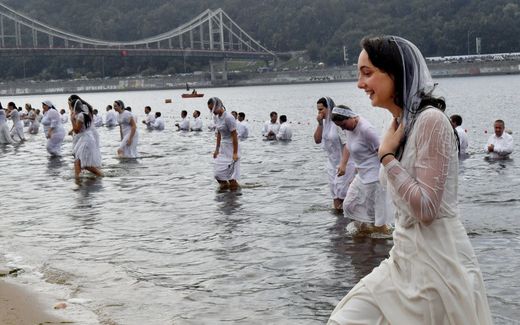Is there a revival in Belgium?
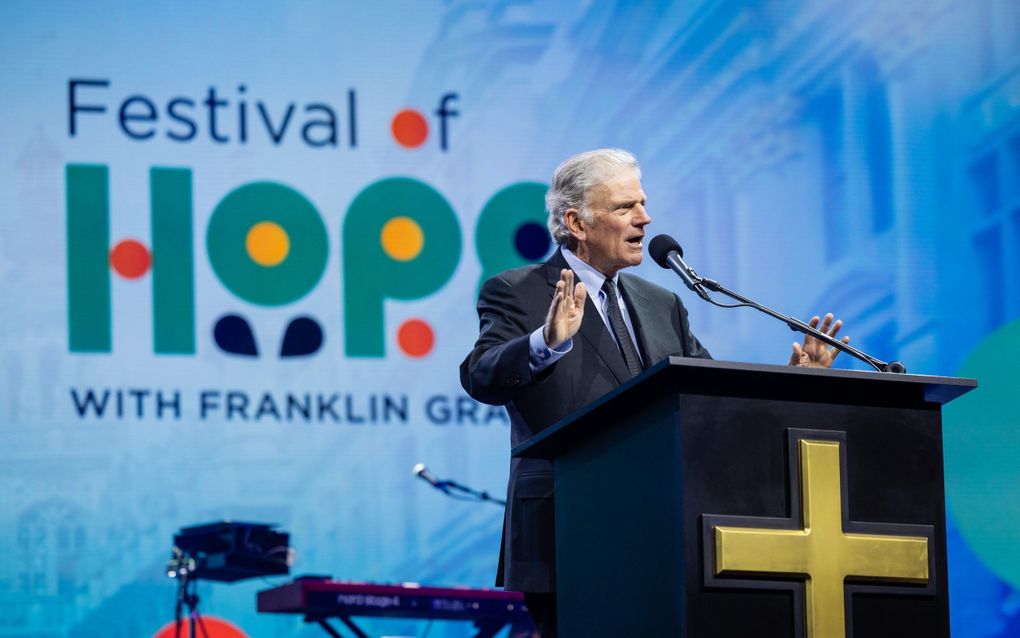
Franklin Graham preaches for a large audience in Belgium during the Festival of Hope. Photo Billy Graham Evangelistic Association
Western Europe
“The graveyard of missionaries.” That is how Belgium is called, oftentimes. And not without cause. For a long time, this country has been rather resistant to the Gospel.
Unlike its Dutch neighbour, the Belgian Evangelical Protestant Church represents only a tiny percentage of the national population. However, this might be changing.
Saturday 27 September 2025 will remain etched in the memory of many Evangelicals. Franklin Graham's evangelistic event in Brussels, The Festival of Hope drew more than 13,000 people, with over 2,000 responding to the invitation to give their life to Christ. This campaign was led by the Billy Graham Evangelistic Association (BGEA).
Of course, those who have experienced Billy Graham's evangelistic campaigns in the past know that this is the nature of such events. In 1975, the well-known Evangelical preacher came to Brussels for a Europe-wide crusade known as “EuroFest”. The event, then organised in the Heysel stadium, had brought crowds from many European countries and seen many committing their lives to Christ for the first time.
Exactly 50 years later, it was his son, Franklin Graham, who had the joy of proclaiming the same message, albeit in a very different global context. But this time, the event organised by the BGEA targeted only the national context.
However, even though the call to conversion is always part of these events, the fact that such a large number of people came to an event in a country like Belgium is unprecedented. Moreover, the presence of more than 600 churches from all regions, despite language barriers, is nothing short of a miracle.
Spiritual climate
These developments were precedented by another remarkable fact: Belgian Evangelical churches have united more and more over the past years. Pastor Daniel Constanza from the Christian Centre in Brussels (see text box) tells more about the current spiritual climate in Belgium.
About Daniel Costanza
Daniel Costanza, born in Belgium as the son of Italian missionaries, grew up in France where he was a language teacher. Later, he served in pastoral ministry with his wife Antonella in Toronto, Canada. Returning to Belgium 20 years ago, Daniel became involved in evangelism projects at the European level through the Pentecostal Fellowship of Europe (PEF), as well as in French-speaking Belgium through the ministry Espoir Wallonie. Currently, he is part of the AEFB Task Force and, since 2018, has been senior pastor of the Christian Centre, an international church on the outskirts of Brussels.
Daniel, what is the general state of evangelicalism in Belgium?
“For a long time, the Belgian Evangelical family has been very fragmented. There are currently twenty different Evangelical denominations all over the country, and then we don't even talk about the linguistic division in Belgium yet, which has also affected Evangelical Christians. In general, we can say that the Belgian Evangelical church does not have a culture of unity. This is true not only at the national level, but also at the regional level.”
How, then, can we explain such unity among the churches that participated in the recent Billy Graham Evangelistic Association (BGEA) event?
“This unity did not grow overnight. For the past twenty years, the prayer network “Pray4Belgium” (led by Ignace Demaerel), which is mainly Flemish, has encouraged unity. For the past ten years or so, several leaders, such as Koen Celis (Flemish Pentecostal church, VPP) and David Vandeput (Antioch network, Anet), have encouraged the idea of a possible national event in a stadium.
On the French-speaking side, about 15 years ago, we began to feel a need for closer ties between Belgian churches. But how could we achieve national unity when even regional unity was practically non-existent? So, we began to work in the Walloon region (French-speaking Belgium, ed.), without forgetting the French-speaking churches in Brussels, by initiating talks and organising fraternal meetings between the various existing pastoral groups. This gradually created a desire to pray and work together.”
Did your initiative bear fruit?
“In 2016, we organised our first French-speaking gathering in Namur called Chrétiens en fête (CEF). There were representatives from each pastoral ministry in the region. By God's grace, this event was so successful that we organised another one in 2018.
After that, we took over the work of the Alliance évangélique francophone de Belgique (AEFB), so the CEF committee became the AEFB committee in 2019. The forced halt to our activities in 2020, during the Covid pandemic, was an opportunity to consolidate our unity in prayer.
“We were surprised by the encouraging feedback from the participating churches.”
In 2023 we organised our first joint project called Espoir 2023 (Hope 2023). The concept was to choose a week during which each French-speaking Belgian church would organise an evangelism event, each in its own context and according to its means. With the support and expertise of others (such as Jonas Association or CMM, Christ from house to house), we were able to offer training in several provinces and in Brussels. Around 50 local churches joined the project. Local collaborations between churches were created for the first time.
We were surprised by the encouraging feedback from the participating churches, which encouraged us to repeat the operation in 2024. Little by little, these initiatives began to reawaken the spirit of evangelism.”
But at that stage, your efforts were limited to the French-speaking region, separated from your Flemish colleagues. Has a similar movement of unity and cooperation begun to take place between Dutch and French speakers?
“It is only recently that we have begun to experience such a rapprochement between Dutch-speaking and French-speaking churches. The catalyst was this campaign from the Billy Graham Evangelistic Association.
As we were preparing for the Hope 2024 campaign, I was informed that the BGEA would be open to the idea of organising a national campaign in Belgium. After an initial contact with the European director of the BGEA, I invited all the representatives of the Belgian denominations and the representatives of the Federal Synod to a meeting to discuss this possibility.
In the meantime, the BGEA invited a Belgian delegation to attend the Festival of Hope in Krakow (Poland) and another in Naples (Italy). As a result, eighteen representatives of Belgian Evangelical denominations signed the official invitation to the BGEA, which triggered the launch of this magnificent national project in 2024, with the prayer and mobilisation of Belgian churches.
In February 2025, the official launch of the project took place in Brussels. Around 500 people attended, mostly pastors and church leaders from all over Belgium. The atmosphere of unity we experienced there was unprecedented in Belgium.
The BGEA team opened an office in Brussels for the organisation of the Festival of Hope with Franklin Graham on 27 September 2025, including a daily intercession campaign. Evangelism trainings were also organised in more than 70 locations.
Ultimately, I believe that Franklin Graham's event is only the beginning of a new season in which the Lord is visiting our country and uniting us to enter into the great harvest before us.”
The troubled history of the Belgian Evangelical church
Modern Belgium (the southern Netherlands at the time) was one of the first territories to turn massively to the Reformation in the sixteenth century. Barely a few weeks after Martin Luther nailed his 95 theses to the door of the church in Wittenberg, French copies of his writings were already circulating in Liège.
Very quickly, the Reformation took root in Flanders, Wallonia and the present-day Holland. Antwerp became the capital of the Reformation in Belgium and the rest of the Low Countries. Guy de Brès and others worked to strengthen the Reformed churches throughout the country.
However, Brussels was also the capital of Charles V's Catholic Empire. Charles V saw the Reformation as a threat to his authority. He launched a bloody counter-offensive to bring the country back to Roman Catholicism, particularly through General Ferdinand of Alba.
During this war, which lasted 80 years, many Protestants were killed, Antwerp was completely destroyed, and many Flemish and Walloon Protestants were forced to flee to the northern Netherlands, which managed to resist and become an independent republic.
The contrast between Roman Catholic Belgium and Protestant Netherlands in the centuries that followed was profound. In Belgium (at the time, the Spanish Netherlands), the Protestant Evangelical Church remained moribund. In the independent Netherlands, the church became the driving force behind the nation-building that would lead the country to its Golden Age.
The humanist revolutions of the nineteenth century further drove the point home, making Belgium one of the most antagonistic countries towards Christianity. This climate has remained dominant to this day. That is why recent changes could mark a turning point for the future of the country.
Related Articles



